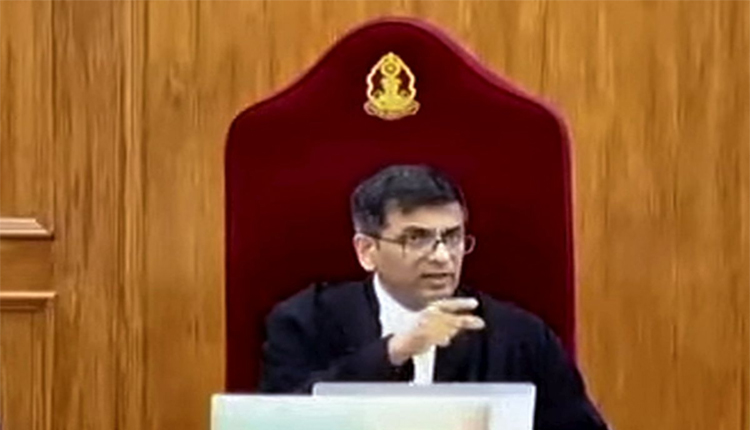New Delhi: The current CJI DY Chandrachud’s term is expiring, therefore he will retire on November 10, 2024. Considering the fact that there are only five working days left for the incumbent Chief Justice of India, Chandrachud, this last week is loaded with five crucial decisions by his bench.
The Supreme Court is currently shut for Diwali vacations and will reopen on November fourth through November eighth. Since the Supreme Court has its vacation on Saturdays and Sundays, and both 9th and 10th November being Sundays, those five days are the last working days for CJI Chandrachud to deliver judgement on important cases.
1. The Madrasa Act Case
Among the listed outstanding judgements one can recognise the Madrasa Act. The Supreme Court had frozen the hearing of the Uttar Pradesh Madrasa Education Board on October 22 and had reserved its judgement on the petitions challenging the Allahabad High Court’s judgement of declaring the Uttar Pradesh Madrasa Education Board Act 2004 unconstitutional. As stated during the hearings, CJI Chandrachud said, “Secularism that doctrine is to live and let live.” This particular verdict may open the floodgates of the restriction of religious education institutions.
2. The Aligarh Muslim University Study on the Minority Status of Aligarh Muslim University
The nature of minority status of Aligarh Muslim University (AMU) is also problematic. The seven-judge bench of the CJI has kept the judgement pending on whether AMU can continue its minority institution. The court is calculating the new decision which was made in 2014 to repeal the decision made in 1968 to denationalise AMU. It is believed that this judgement is going to be more influential for those institutions in India which are manage by minorities.
3. Redistribution of Property
The Chief Justice’s nine-judge bench is also expected to give its ruling on Article 39(b) of the Indian Constitution which relates to the operation of the provision of improvement of the distribution of property for the benefit of the people. Again the property distribution was articulated by the Congress party and perhaps forced into the Supreme Court. The future judgement may lay down paremeters which have implications for the distribution of resources for the public good.
4. Light Motor Vehicle (LMV) Licence Case
Another is the Light Motor Vehicle (LMV) licence controversy as to whether LMV licence holders should be allowed to operate transport vehicles above 7,500 kg. As with all things Ford and trucks, the outcome will have major ramifications for insurance along with legal culpability in the case of accidents involving traditionally larger vehicles. In the case a hearing on the arguments was done on 21/08 and the verdict is still waiting to be released.
5. Tree Cutting Without Permission in Delhi’s Ridge
The last expected case to come up before CJI Chandrachud is the tree felling case relating to Delhi Ridge which is unlawful. This arose after some people chopped trees in South West Kordofan in South Kordofan state contrary to the Supreme Court directive. Delhi’s LG has stated that he was unaware of the need for the court nod for tree cutting in the Ridge area. The decision on this subject will also encompass the environmental aspects and responsibilities of infringement.
A selection of the most recent notable Supreme Court decisions
There has been a recent directive from the Supreme Court on several key rulings. It set aside the order of the NCLAT which had stayed insolvency proceedings against Ed-tech firm Byju’s. The court also put in place several directives pressing for the eradication of child marriages, and this has put emphasis on goal of the law. Furthermore, the Supreme Court decree stated that the state governments have a power to regulate industrial alcohol.



Comments are closed.